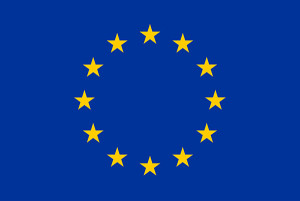All times are GMT+3 (Helsinki Time Zone)
Tuesday, 22.09.2020
15:10-16:10
MMSP Panel: The future of modern imaging
The panel features industrial experts in various aspects of imaging. Panelists represent companies having based their research arms in Tampere, the city cast as ‘Silicon Valley of Imaging’. Panelists:
- Jarno Nikkanen, Senior Director / Camera algorithm and image quality specialist, Xiaomi Finland
- Juha Alakarhu, Vice President of Imaging, Axon, Finland
- Igor Curcio, Bell Labs Distinguished Member of Technical Staff, Nokia Technologies, Finland
- Martti Ilmoniemi, Principal Specialist, Imaging algorithms, Huawei Technologies, Finland
Wednesday, 23.09.2020
15:10 – 16:10
MMSP Plenary 2: Progress, challenges, and opportunities of head-mounted light field displays for mixed reality
Prof. Hong Hua, University of Arizona
Despite the high promises and the tremendous progress made recently toward the development of head-mounted displays (HMD) for both virtual and augmented reality displays, developing HMDs that offer uncompromised optical pathways to both digital and physical worlds without encumbrance and discomfort confronts many grand challenges, both from technological perspectives and human factors. In this plenary address, I will particularly focus on the recent progress, challenges and opportunities for developing head-mounted light field displays (LF-HMD), which are capable of rendering true 3D synthetic scenes with proper focus cues to stimulate natural eye accommodation responses and address the well-known vergence-accommodation conflict in conventional stereoscopic displays.
Friday, 25.09.2020
10:00 – 12:00
Ethics for authors: Things you should know before submitting your next paper
Prof. Alessandro Foi, TAU, Editor in Chief IEEE Transaction on Image Processing, starting Jan. 2021)
The presentation is particularly addressed to new authors with little experience about the publication workflow and principles, and focused on the dos and don’ts for successfully publishing a technical paper. It offers an overview of the peer-review process in IEEE journals and discusses the ethics and etiquette standards that authors are expected to uphold and that reviewers and editors are looking for. Topics include: choice of the publication venue, authorship, fair reporting of own and others’ results, appropriate disclosure and referencing to own previous work, appropriate description and citing of prior work, plagiarism, duplicate submissions, inappropriate replication, and bibliometric manipulation.
Monday, 28.09
15:00 – 18:00
Intellectual and Technology Assets Management: The Logistics of Ideas
Roberto Castagno, Head of IPR, Neste
Open innovation and knowledge-based business models are becoming dominant in the creation of value from innovation and technology. The management of Intellectual Property Rights (IPR) has become an essential enabler for a knowledge-based economy. Patents, copyrights, trade secret, know-how are tools that turn intangibles -such as “innovation”, “technology”, “knowledge”- into tradable assets.
Unfortunately, IPR make the headlines in association to litigation and high-profile “patent wars”, and academic and educational effort on IPR is often confined to law schools. In reality, IPR competence is not important just for lawyers, but it is a crucial skill for engineers and business managers, as well.
The management of technology and intellectual assets is an increasingly critical aspect of operations for all kinds of businesses, from start-ups to large corporations. This “Logistics of Ideas” is as important for the knowledge-based economy as the traditional logistics was for the economy based on physical products.
Upon completing the seminar, the participants will have a basic understanding of the role of Intellectual Property Rights in the operations of technology businesses, as well as overview of the toolbox available to them in order to manage and control intangible assets.
Tuesday, 29.09
10:00 – 11:30, 13:30 – 14:45, and 15:00 – 16:15
Turning research into a product / service – Part 1 (Startups, LinkedIn)
Tamir Huberman, Chief information officer at Yeda Technology Transfer of Weizmann Institute
The process of transforming novel and promising research results into products or services is a long and complicated one. This process is termed “Technology Transfer” and is conducted by professionals that have the capacity to evaluate the research results from a commercial standpoint, protect it in the form of a patent or trade secret and later locate existing companies that would be interested to develop it further or establish new startup companies based on the Research results.
The aim of the lectures is to give a taste of the Israeli Ecosystem and share some of the most practical tools that greatly assist with the commercialization process.
Wednesday, 30.09
10:00 – 11:00 and 11:15 – 12:15
Turning research into a product / service – Part 2 (Information tools and databases, Neuro linguistic programming)
Tamir Huberman, Chief information officer at Yeda Technology Transfer of Weizmann Institute
Continuation from Tuesday.

 This project has received funding from the European Union’s Horizon 2020 research and innovation programme under the Marie Sklodowska-Curie grant agreement No 764951.
This project has received funding from the European Union’s Horizon 2020 research and innovation programme under the Marie Sklodowska-Curie grant agreement No 764951.